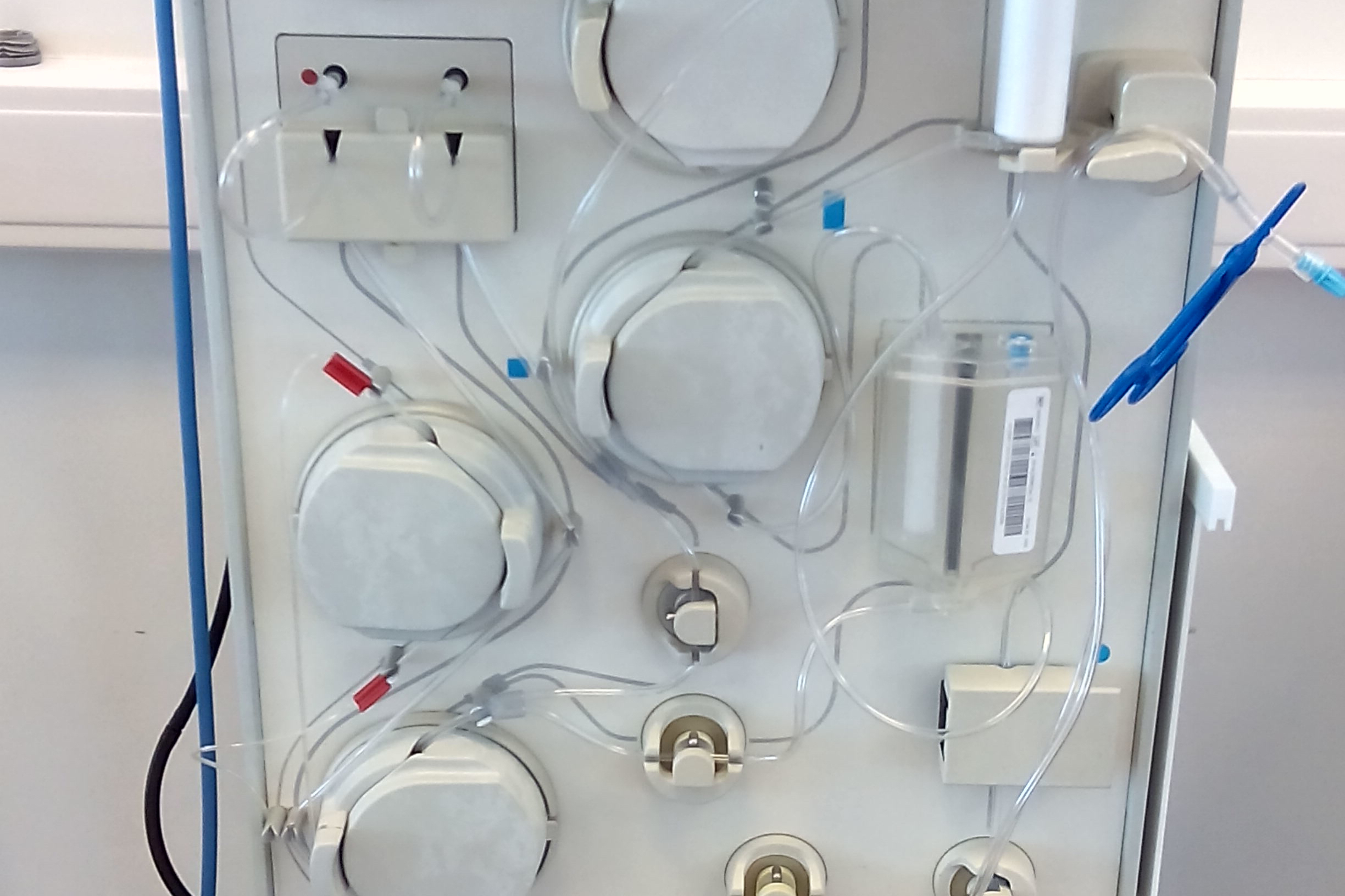WHAT IS IVIG?
Intravenous immune globulin (“IVIG”) is a product made up of antibodies that can be given intravenously (through a vein).
Antibodies are proteins that your body makes to help you fight infections. Each antibody made by your body is slightly different, because it fits like a lock and key to every foreign substance (such as a virus) that gets into your body. This is why you need a new flu shot every year; each year the flu virus is slightly different, and different antibodies (which the vaccine causes your body to produce) are required to protect you. Over the course of your life your body makes thousands of different antibodies as you are exposed to different proteins that your body considers to be “foreign.” IVIG is prepared from the blood donated by thousands of people, to make a super-concentrated and very diverse collection of antibodies against many possible foreign substances your body might encounter.
WHY DO I NEED IVIG?
IVIG is used primarily in two situations.
One reason you might need IVIG is if your body does not make enough antibodies. Another name for this is humoral immunodeficiency. The IVIG simply provides extra antibodies that your body cannot make on its own. IVIG also provides a wide range of antibodies to help fill in for those your own immune system has not encountered. The antibodies usually last for several weeks and help your body fight off a large variety of infections. If you are getting IVIG for this reason, you will need to get it on a regular schedule.
A second reason you might need IVIG is if your immune system has started attacking your own body. Conditions in which this happens include:
- Immune system destruction of your own blood platelets (known as immune thrombocytopenia [ITP])
- Immune system destruction of your own red blood cells (known as autoimmune hemolytic anemia [AIHA])
- Immune system attack on your nervous system, such as nerves that control your breathing (in Guillain-Barré syndrome) or nerves that control sensation (for example, in chronic inflammatory demyelinating polyneuropathy [CIDP])
It is not completely known how the IVIG works to prevent your immune system from attacking your own body. Experts believe it does a combination of things, including effect the immune cells and the antibodies they produce.
HOW IS IVIG GIVEN?
IVIG is given into a vein (“intravenously”), in an infusion that takes one hour or more. The amount of IVIG you need for each dose depends on your weight as well as the reason you are getting the IVIG:
- Less IVIG is needed if the purpose is to replace the antibodies your body should be producing. However, you need to continue to receive it on a regular basis. Your doctor will determine how often you need the infusions, and how long you will need to continue to get them (this may need to be re-evaluated periodically depending on your diagnosis).
- More IVIG per dose is needed if the purpose is to block your immune system from attacking your own body. However, you may not need too many doses. Your doctor can usually tell after one or a few doses whether the IVIG is going to work.
There are a number of different brands of IVIG that are mostly the same but have some slight differences. You probably will not notice a difference between the brands, but a small number of people do. In general, if you are going to be receiving IVIG on a regular basis, it may be best to use the same brand every time to reduce the risk of side effects.
IVIG usually is given in a doctor’s office or hospital. In some cases, it can be given in the home, if proper arrangements are made. It is important that you are comfortable with where you will be receiving your IVIG and that you let your provider know if you have any questions or concerns related to personal limitations you may be facing.
IVIG SIDE EFFECTS
Many people do not have side effects from IVIG, but there are a lot of possible side effects, especially if you are not receiving the IVIG on a regular basis and/or if you are receiving larger doses of IVIG. However, over the course of their treatment, up to half of people may experience one side effect, usually minor or bothersome but not dangerous. Very rarely, more serious side effects like allergic reactions or blood clots can occur.
The most common side effect is headache. Other side effects include chills, fever, flushing, flu-like muscle pains or joint pains, feeling tired, having nausea, vomiting, and allergic-type reactions. For the most part, these reactions are mild and typically happen with the first dose of IVIG or if you change to a different brand of IVIG. You will be monitored to watch for these and other reactions.
Side effects that can happen a day or more after you receive IVIG include blood clots, rashes, kidney problems, and low blood counts.
Your doctor may do several things to reduce the chance of having these side effects, including:
- Performing certain blood tests before the IVIG is started
- Keeping you well hydrated, in some cases giving extra fluids (by mouth or intravenously)
- Giving the infusion more slowly
- Dividing a large dose into several smaller doses that are given over several days
- Giving you pain-relieving medications prior to your infusion – These may include acetaminophen (sample brand name: Tylenol); a non-steroidal antiinflammatory drug or “NSAID” such as ibuprofen (sample brand names: Advil, Motrin) or naproxen (sample brand name: Aleve); or glucocorticoids. However, many people do not require these medications before the IVIG is given.
- Some patients may be given a medicine like aspirin to help prevent blood clots. Your doctor may also advise you not to sit still for long periods of time (for example, on an airplane flight) in the day or two following the infusion.
Some people worry about contracting a disease through IVIG, since it is made from blood donated by other people. The risk of getting a viral infection from IVIG is considered exceedingly low. No one has ever gotten HIV (the virus that causes AIDS) from IVIG, and the methods used to purify IVIG will destroy bacteria, hepatitis viruses, and other infectious organisms. However, no one can predict every new infection that may develop. This is one of the reasons IVIG is only given when it is really needed, and records of the specific IVIG lot number are kept.
Prednisone
Prednisone is used to treat many different inflammatory conditions such as arthritis, lupus, psoriasis, ulcerative colitis, allergic disorders, gland (endocrine) disorders, and conditions that affect the skin, eyes, lungs, stomach, nervous system, or blood cells.
IVIG
Intravenous immune globulin (“IVIG”) is a product made up of antibodies that can be given intravenously (through a vein). IVIG is given into a vein (“intravenously”), in an infusion that takes one hour or more. The amount of IVIG you need for each dose depends on your weight as well as the reason you are getting the IVIG:
Plasmapheresis/Apheresis
Plasmapheresis/Apheresis is a process in which the fluid part of the blood, called plasma, is removed from blood cells by a device known as a cell separator. The separator works either by passing the blood at high speed to separate the cells from the fluid or by passing the blood through a membrane with pores so small that only the fluid part of the blood can pass through.
Eculizumab
Eculizumab is the first treatment to be approved to treat adults with anti-AChR Ab+ gMG in more than 60 years. Soliris works to help manage anti-acetylcholine receptor antibody-positive generalized Myasthenia Gravis (anti-AChR Ab+ gMG) by focusing on a specific part of your immune system.
VYVGART
VYVGART is the first treatment that uses a fragment of an IgG antibody to treat adults with anti-AChR antibody positive gMG. VYVGART is a fragment of an IgG antibod
Rituximab
Rituximab is a genetically engineered antibody that depletes CD20+ B-cells and is Food and Drug Administration- approved for treatment of non-Hodgkin lymphoma, CD20+ CLL, and rheumatoid arthritis. It carries a favorable side effects profile.






